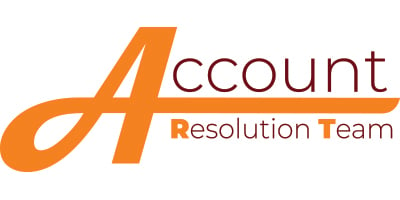At some point you may have asked yourself exactly what debt collection agencies do and how they work. A debt collection agency is the entity that employs debt collectors tasked with recovering late or missed payments. Often these agencies are the “middlemen” who recover funds for the original creditors and lenders. Their overall objective is to legally recover debt while abiding by federal and state laws. There are different types of collection agencies which specialize in different amounts and types of collection.
Collection agencies don’t get involved until a consumer is more than 30 days behind on payment when their account is considered delinquent. That’s when a creditor or lender will use an agency to retrieve overdue payments such as but not limited to credit cards, student loans, car loans, personal loans, medical, utility, and cell phone. In return for this service, creditors and lenders pay collection a percentage of the amount collected. While their primary goal is to recover as much of the original delinquent debt as possible, some agencies will negotiate debt resettlements, or smaller balances than originally owed. In some difficult cases where the consumer refuses to pay, legal actions may be brought to court. If the customer loses the case brought against them by the collection agency, it could result in levies, liens, and garnishment of wages. Once a balance is delinquent, the creditor or lender will send the customer’s contact information to the debt collector, who is tasked with communicating with the customer by phone or letter.
You might be wondering how a debt collector does this. Well, it’s important to note that the phone or letter approach is the old model and new tech such as AI, messaging apps, and email, is rapidly changing the way creditors, collectors, and consumers communicate. Regardless of how the collector reaches the customer, it is their job to make contact and send a debt verification letter within 5 days. If a collector cannot verify the debt, they are not allowed to pursue the claim with the customer.
Collectors may use all legal tools at their disposal such as special skip-tracing software and private investigators. However, this does not mean they are allowed to harass, discriminate, or use deceptive practices against you. The Fair-Trade Commission and The Fair Debt Collection Practices Act exist to protect consumers from these things. For example, agencies are only allowed to call at certain times (between 8am and 9pm), they cannot threaten the use of law enforcement, and they can’t publicize your debts. A collection agent must also adhere to the statute of limitations. If the debt is older than the statute of limitations on that debt, agencies can’t pursue it. Once they establish lawful and respectful communication, the collector then comes up with a plan for the customer to repay their debt.
As a consumer it is important to know that involvement of a collection agency is reported to the credit bureau, lowering and damaging your credit score. It’s a big deal, and something to be avoided. Be sure to monitor your credit regularly for any identity theft could also result in debt collectors calling and sending you letters. Remember that reputable agencies will not harass you and you are protected by the law. Know your rights. A debt collector also doesn’t have the ability to tap into your bank accounts for money. The only instances where wage garnishment, levies, and property liens are allowed is following legal judgment against the customer.
For more information on how Account Resolution Team can help YOU get your money, call 423-586-7613 or visit www.accountresolutionteam.com


